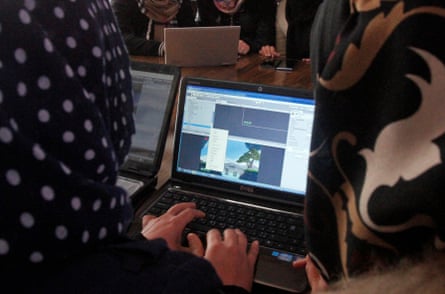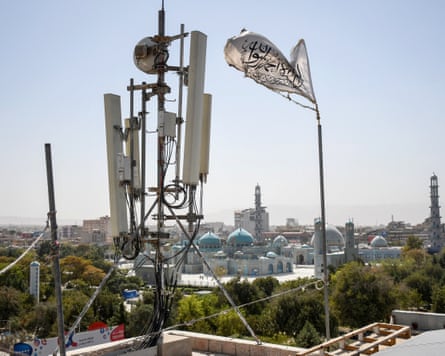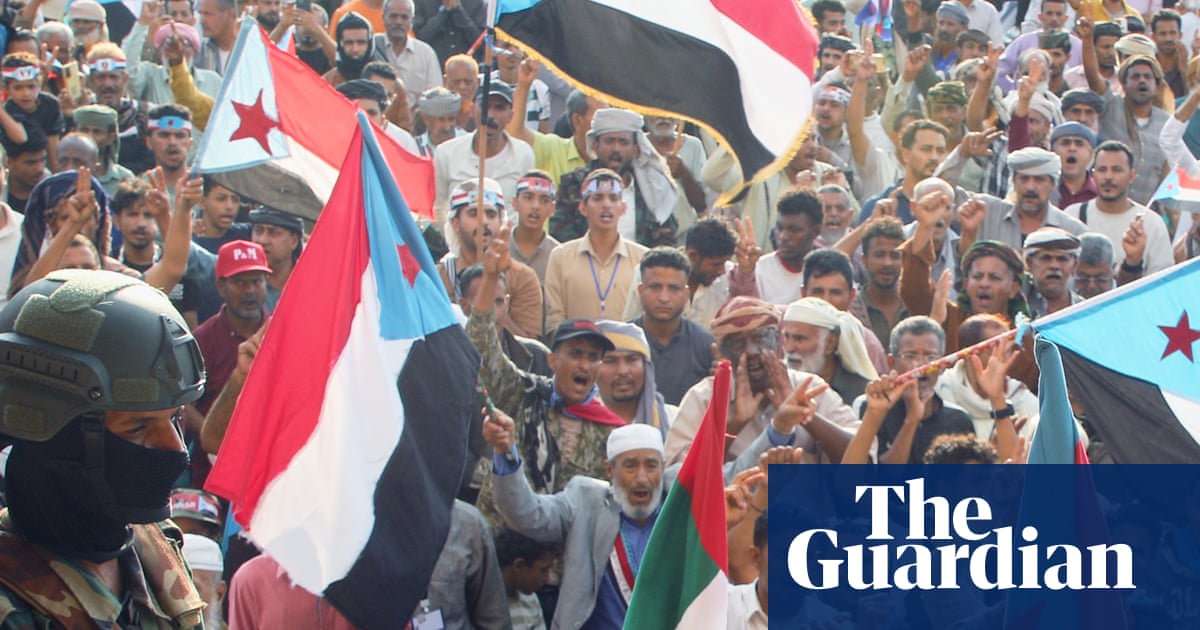Last week, 17-year-old Marjaneh* sat at her computer, waiting for her nightly online English lessons to begin. At 7pm, the scheduled start time, her laptop screen stayed black. The family’s wifi, like the wireless internet across her neighbourhood, had gone and with it, her only chance to continue her education.
“These online classes were my only source of hope,” says Marjaneh, speaking from Afghanistan through a crackling phone connection. “I thought, when they [Taliban] closed schools at least they wouldn’t cut the internet, but now that has been taken away too.”
Last Monday, the Taliban started shutting down Afghanistan’s fibre-optic internet across the northern provinces. On 15 September, the connection to Balkh province was cut and since then access to broadband internet has also been closed to Kandahar, Helmand, Uruzgan, Nimroz, Zabul, Baghlan, Takhar, Kunduz, Badakhshan, Herat and Parwan.
The move has been taken, according to the Taliban’s supreme leader, Hibatullah Akhundzada, to “prevent immorality”, and there are now fears that this is the first step towards a total shutdown of internet access for ordinary Afghans.
The Taliban leadership is reportedly not only considering cutting broadband services but also extending the ban to internet services offered by telecommunications companies, which would stop people getting online using mobile data.
The move, which coincides with the fourth anniversary of the Taliban’s ban on girls attending secondary school, is a fatal blow to the online schools that became one of the last educational lifelines for Afghan girls and young women barred from classrooms and universities.
Marjaneh had hoped English would be her ticket to a scholarship abroad and a chance to train as a doctor. But without wifi, her only option is mobile data – patchy, expensive and off-limits in Kandahar to girls without a male relative to buy them a sim card.
In Takhar province, 17-year-old Maryam* faces the same battle. She had been studying coding and graphic design as well as preparing for a test of English as a foreign language (TOEFL) through an online course since January 2025.
When the wifi was cut, she switched to her phone but says: “The teacher’s voice kept cutting in and out. For coding you need a stable computer connection; without it, the whole lesson collapses.”

Her family used to pay 1,100 afghanis (£12) a month for unlimited wifi. Mobile data costs double, and the package finishes within days. “This week I felt like I did during the fall of Kabul,” she says.
Since they have been barred from education, tens of thousands of girls and women have turned to online education. One provider, the “Online Women’s University” says it had enrolled 17,000 Afghan students across 15 subjects, many joining classes from their bedrooms.
Cutting internet not only prevents girls from learning online, but also severs their last connection to the outside world.
“It wasn’t just about classes,” says Roweida*, a 25-year-old law student in Balkh province. “It kept our spirits alive. Every night we met on Google Meet and hearing each other’s voices gave us hope. When the internet went, it felt like the roof had fallen on us.”
after newsletter promotion

Afghanistan’s fibre-optic project began in 2007 with $60m in donor funding, eventually spanning nearly 6,000 miles (9,000km) and linking 26 provinces to global networks. By last year, nearly 26 million Afghans had access to telecommunications, with fibre offering the fastest and most affordable route.
Now, that infrastructure sits idle on Taliban orders. Mobile internet remains but is slow, as bandwidth is restricted. It is also costly, a luxury in a country where unemployment is soaring and food insecurity affects most households.
In Baghlan, Sonia*, 21, who was participating in online journalism classes run by Zan Times, says she feel hopeless as the cost of data is unaffordable when her only brother’s wages have to support their whole family (when about 85% of the population live on less than 2,200 afghanis a month). “I bought 5GB of data for 400 afghanis, it lasted two weeks,” she says. “It’s impossible to keep paying for such a high cost.”
For families already stretched, the shift from unlimited home wifi to metered mobile data doubles the costs and sharply reduces access.
For girls such as Marjaneh and Maryam, the price is not only fiinancial but existential. “If this continues,” Maryam said, “I won’t graduate. I’ll lose TOEFL, coding, everything. It just feels hopeless.”
* Names have been changed to protect identities

 3 months ago
63
3 months ago
63

















































